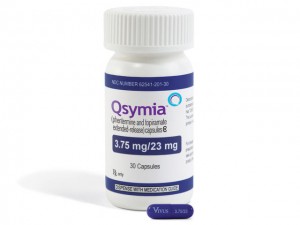Warnings & Recalls for Qsymia
Qsymia and Pregnancy
Qsymia is listed as an
FDA pregnancy Category X medicine and
should not, in any circumstance, be taken by a woman who is pregnant. If taken in the first trimester, Qsymia can cause harm to the fetus and increase the risk of
birth defects such as a
cleft lip or
cleft palate. Women who are taking Qsymia must use a proper form of
birth control during use.
Do not breastfeed while taking Qsymia. If you
become pregnant while you are taking Qsymia, stop using Qsymia and contact your doctor immediately.
Qsymia Warnings
Qsymia is not for all patients. Persons with the following conditions
should not use Qsymia:
- allergies to any ingredient in Qsymia
- glaucoma
- an overactive thyroid
- women who are pregnant or are breastfeeding
- recent heart attack or stroke
Do not take Qsymia if you are currently using any
monoamine oxidase (MAO) inhibitors or any medicines for treating
valve-related heart disease.
Ask your healthcare provider about safely using Qsymia, especially if you:
- have depression, anxiety, or any mental illnesses
- are a man with any disorder which may put you at risk for erection lasting longer than 4 hours (including cancer or certain blood disorders such as anemia or multiple myeloma)
- have erectile dysfunction or a penis deformity
- have history of migraines
- currently have cold or any allergies
- have heart disease or any heart disorder
Qsymia Treatment and Use
Qsymia | phentermine and topiramate is a long-term weight reduction medicine approved by the U.S. Food and Drug Administration on July 17, 2012 and marketed by Vivus Pharmaceuticals for improving symptoms of obesity. Qsymia is prescribed to patients who are overweight and have a condition that is weight-related (high blood pressure or cholesterol levels or type 2 diabetes). Using Qsymia for weight-loss may benefit patients through:
- reducing the risk of a stroke, heart attack, or diabetes
- decreasing depression
- increasing life-span and decreasing the risk of heart-related death
How Does Qsymia Work?
Qsymia works through a combination of two different medications: phentermine and topiramate. Although the exact method of action is unknown, phentermine is thought to decrease the appetite by increasing levels of leptin, which is responsible for maintaining and controlling feelings of hunger. Topiramate (an anti-seizure and migraine medicine) accounts for a sense of fullness and increases the metabolic rate.
How to Take Qsymia
Qsymia comes in capsule form to be taken by mouth. Qsymia is normally prescribed to be taken once daily in a 7.5 mg phentermine and 46mg topiramate dose. Do not take any amount different than what you have been instructed to use by your doctor.
Your doctor may require you to follow a special diet and exercise regimen while taking Qsymia to assist in your weight loss. Have regular exams to ensure that Qsymia is safe for your use.
